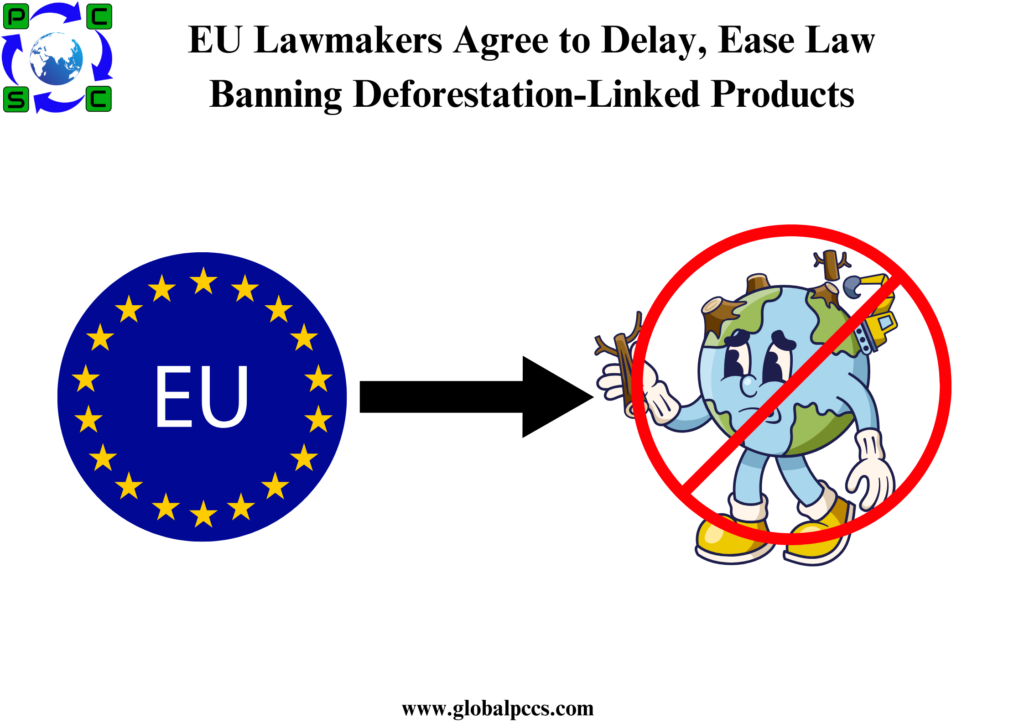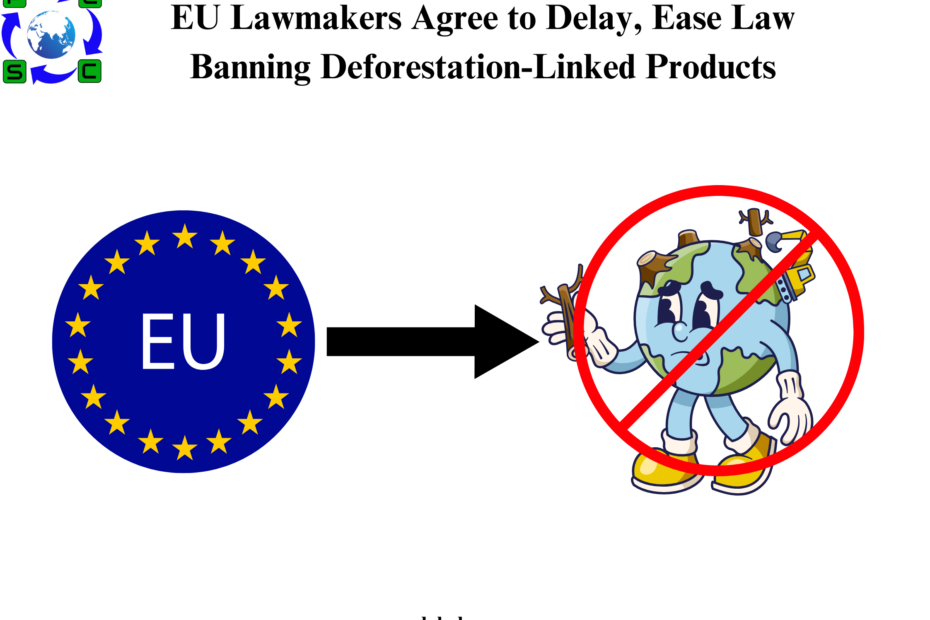 Lawmakers in the European Parliament voted 371 to 240 to a one-year delay and amendments to alter the EU Deforestation Regulation (EUDR), a new law aimed at ensuring that products imported to or exported from EU markets no longer contribute to deforestation and forest degradation globally, which was set to apply to from the end of this year, beginning with large companies.
Lawmakers in the European Parliament voted 371 to 240 to a one-year delay and amendments to alter the EU Deforestation Regulation (EUDR), a new law aimed at ensuring that products imported to or exported from EU markets no longer contribute to deforestation and forest degradation globally, which was set to apply to from the end of this year, beginning with large companies.
While the MEP’s vote would see some changes in the new law, including the exemption of countries assessed as posing little deforestation risk from most of the EUDR requirements, several other proposed amendments aimed at significantly easing and extending the delay of the law were removed prior to the vote.
The EUDR was initially introduced by the EU Commission in November 2021, with proposals aimed at effectively banning deforestation-linked projects on the EU market, and establishing strong compliance requirements for companies providing or utilizing key commodities and products such as palm oil, beef, timber, coffee, cocoa, rubber and soy, in addition to some of their derived products, such as leather, chocolate, tires, or furniture.
Under the new rules, companies that want to place relevant products on the EU market, or export them, will face mandatory due diligence rules, including a requirement to trace the products back to the plot of land where it was produced, to prove that the products were produced on land that was not subject to deforestation after 2020, and are compliant with all relevant applicable laws in force in the country of production.
The regulation entered into effect in June 2023, giving companies 18 months to implement the rules, which would become applicable at the end of December 2024 for large companies, and June 2025 for micro- and small enterprises. In October, however, the Commission proposed a one-year delay to the new rules, noting that “several global partners have repeatedly expressed concerns about their state of preparedness,” and adding that even within the EU, “the state of preparations amongst stakeholders in Europe is also uneven.”
Prior to the vote, the European People’s Party (EPP), the largest party in Parliament, proposed a series of amendments to the law, which was described by EPP MEP Christine Schneider as a “bureaucratic monster,” that “risks hampering European farmers and businesses.” The EPP’s proposals included extending the delayed implementation to two years, creating a “no risk” category for countries with negligible deforestation risk which would face significantly less stringent requirements, and exempting traders from the regulation, such that only companies placing products on the market would be responsible for proving the products’ deforestation-free status.
While the extended delay and trader exemption were removed, MEPs voted to approve the creation of the “no risk” category, and to the one-year delay.
Stay ahead in the world of sustainability compliance with Global PCCS, where expert insights meet the latest regulations. Unlock a future where compliance drives sustainability and your business thrives in a greener, regulated landscape.








 Authorised IMDS & CDX Training & Consulting partner for
Authorised IMDS & CDX Training & Consulting partner for





